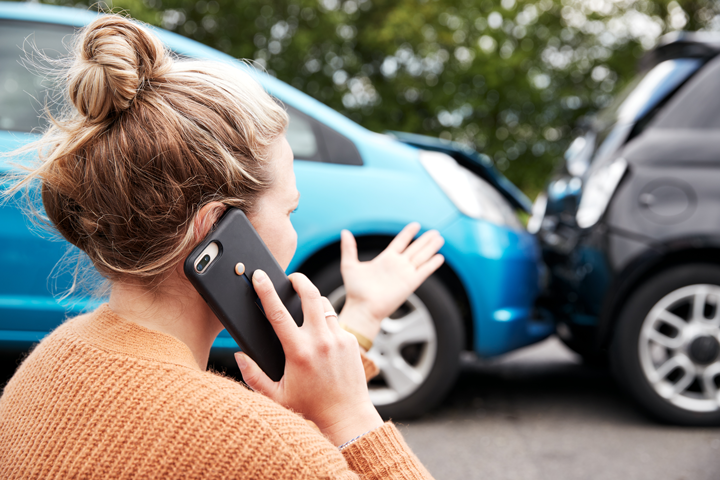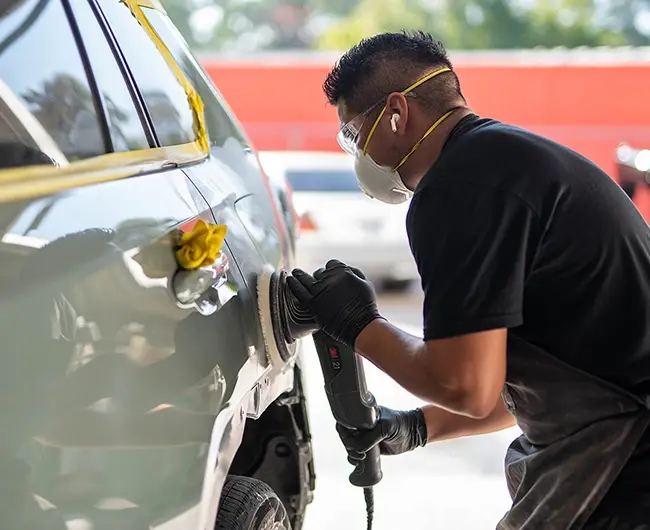Which Car Noises Should I Be Concerned About?
Your car makes lots of noises, but sometimes after an accident or just out of nowhere, it starts to sound … different. These sounds can seem harmless at first, but your car is made of thousands of moving parts that are only supposed to move in a certain way.
If you’re hearing a strange sound from your car, you can bet that some of those pieces are wearing down and your repair bill is already going up — you just haven’t rung the register yet. Find out which car sounds are warning signs of hidden problems that need to be fixed now.
Is your car making strange sounds after an accident?
Contact Flagstaff Collision Center for the collision repair services you need.
How to Listen for Strange Car Noises
When listening to your car for strange sounds, you’ll want to use a process of elimination to discover the source and isolate it. Set aside some time and find a quiet place to patiently experiment with different components of your car. Do one action at a time before combining them, such as stepping on your brakes, turning, or accelerating.
Once you can find the source of the sound, make a note of what it was like and under what conditions you discovered it. This is vital to getting an accurate auto repair estimate.
Problematic Car Sounds
If you hear any of the following sounds, you may require professional vehicle or car repair.
The Car Chirps or Squeals When it Starts or Accelerates
If the belts in your car are on their way out, they’ll start making noise whenever they’re pushed to perform. The sound might be coming from the serpentine belt, which is like a master belt for the car, or from one of the accessory belts that operate components of your car. The serpentine or accessory belts might need to be replaced, which can be a relatively easy and inexpensive car service to perform.
There’s a Clunking Sound in the Tire
Have you ever left your keys or a quarter in the dryer? If your tire is making that sound at low speeds, it could be due to a loose lug nut. At lower speeds, there’s not enough centripetal force to keep it from rattling against the hubcap. You’ll need to take your car into the shop to tighten the lug nut and inspect the tire for damage.
Bang!
Does starting your car make you jump in your seat? Your engine could be mixing too much fuel and air, causing the excess fuel to explode in the tailpipe. Your catalytic converter, which converts and filters out many of the dangerous emissions your car produces, could be clogged, causing air to build up and sputter out. If the sound is coming from the engine, there could be a problem somewhere along the path the fuel takes, whether it’s old spark plugs or something else.
Your Brakes Sound Angry
You don’t ask your brakes for much, but when you do, they growl, squeal, or screech. Higher-pitched sounds indicate the pads are wearing down, while grinding means the pads are mostly gone and only metal is left. If you hear any of these sounds from your brakes, you’ll most likely need to get them replaced. Driving with them in a worn-out condition is dangerous to yourself and others on the road.
The Engine is Ticking
Your engine could be low on oil if it’s ticking. If adding more doesn’t make the ticking stop, your engine could have low pressure. This can damage your engine if you continue to drive without fixing it. However, if you’ve been driving your car a lot and are behind on car maintenance, the engine could simply be on its last legs. The good news is that it may remain functional for a long time, but sooner rather than later, it will eventually need to be replaced.
Clicking or Popping, Especially When You Turn
Constant velocity (CV) joints are critical components of two- and four-wheel drive systems that allow the transmission to power the wheels. Just like with a bodily joint that needs to be popped, if these need to be replaced, they’ll click and pop when placed under stress. This can be especially pronounced during a turn. If you hear this sound coming from your wheels, the CV joints may need to be replaced.
Whirring and Humming
There could be several causes of humming or whirring under the car, but it’s never a good sign. It’s probably hard to locate and can implicate several different critical parts of your car. The sound may require anything from a new differential to transmission repair to remedy or simply more oil in your gearbox. A professional can inspect your vehicle and determine the source of the sound and proper course of action.
The Car Whistles, Sings, or Howls
If your car is sounding strangely musical or even eerie, it could be from the ball bearings in the front- or rear-wheel drive. The sound you hear is metal on metal and will be louder if it’s in the rear of your vehicle and quieter if it’s in the front. The sound could also come from a differential, which spins wheels faster or slower independent of one another as needed, leaking fluid. You’ll need to get the problem fixed, as the sound means metal parts in your car are slowly grinding each other down.
Is Your Vehicle Making Strange Noises After an Accident? Give Us a Call!
It’s common to hear strange noises from your car after an accident, even if it’s a relatively minor one. If you’re hearing new rattling, grinding, popping, or other sounds from your car that it didn’t make before, take it to a qualified auto body repair shop. At Flagstaff Collision Center, we use factory-grade equipment and certified technicians to restore your care to factory condition. Contact us today to set up an appointment, so we can find the problem with your car and work to get it fixed as quickly as possible.




